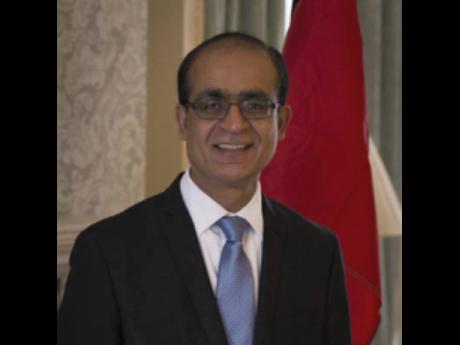Deodat Maharaj | Fast-tracking Caribbean COVID-19 recovery
COVID-19 continues to wreak havoc in 2021. BBC has reported that as of February 1, more than 100 million people have been infected with the virus, and 2.2 million people have died across nearly 200 countries. And there are still over 382,000 new cases every day.
Although both rich and poor countries have faced the full wrath of the pandemic, the difference is, the developed countries are buffered by their wealth, enabling them to recover faster than anyone else.
On the other hand, we in the Caribbean continue to take a battering, much like our shorelines during a hurricane. But, unlike a Hurricane Irma or Maria, which created unprecedented destruction in a matter of hours in 2017, with COVID-19, soon it will be almost one year that this pandemic has been inflicting continuous hardship on the lives and livelihoods of our people.
Caribbean countries have largely managed well from a public health perspective. However, on the economic side, notwithstanding best efforts, the impact has been harsh. Tourism as the mainstay of the region’s economy had seen record tourist arrivals in 2019 of 31.5 million stayover visitors. It is now a mere trickle.
Given that tourism accounts for between 34 per cent and 48 per cent of total GDP in countries such as The Bahamas, Barbados, and Jamaica, the effect has been massive.
Looking ahead, it is not all doom and gloom. We have a unique opportunity to press the reset button on our development agenda with business becoming a key partner on the path to recovery and resilience. To achieve this, Caribbean countries first require a sustained and forensic focus to create the enabling environment for business to flourish. The World Bank’s Doing Business Report 2020 ranks most Caribbean countries in the bottom half of countries globally. The exceptions are Jamaica and St Lucia, which are ranked at 71 and 93, respectively.
Caribbean countries can and must do better. There is no prize for second place in this increasingly competitive world. We must accelerate efforts to improve the ease of doing business, including the establishment of special-purpose units with the exclusive responsibility for the breaking down of barriers to doing business and fast-tracking implementation of high-priority policies.
We also need to look at other experiences. Mauritius is a small island faced with similar challenges like the ones we have. Nonetheless, they have consistently improved in their ‘ease of doing business’ ranking, and in the same 2020 World Bank report was ranked 13th in the world. This is higher than Australia, Canada and Germany. We can certainly learn from Mauritius.
Closely connected to the ease of doing business is the imperative of attracting foreign direct investment to generate jobs, growth and prosperity. Though Caribbean countries have been making concerted efforts to attract foreign direct investment, the results have been mixed. There are individual success stories, including in the natural resource-rich countries like Trinidad and Tobago and Guyana, as well as in the tourism sector. However, we are not attracting foreign direct investment on the scale required to achieve the creation of much-needed jobs and generate inclusive growth.
Like everywhere else, COVID-19 has accentuated the challenge of attracting investment. The Economic Commission for Latin America and the Caribbean had projected a decline in foreign direct investment to Latin America and the Caribbean in 2020 by about 50 per cent. With many economies across the region in a state of prolonged shutdown, the downward investment trend for 2021 is expected to be even more precipitous.
New strategies and approaches are required to bring investment to our shores. These include proposing projects that are regional, where more than one country can be packaged to an investor. There is strength in numbers. Caribbean Export has already started working to strengthen and improve the region’s capacities to attract foreign direct investment. It supports the Caribbean Association of Investment Promotion Agencies to increase collaboration among national investment promotion agencies, and have identified strategic sectors for targeting, such as agrotechnology, business process outsourcing, renewable energy, and biotechnology.
We need to ramp up support to micro, small and medium-sized businesses. These businesses are the lifeblood of local economies. They need to be innovative, agile, and leverage the opportunities provided by digitalisation. Going forward, a package of support is required combining know-how, access to finance and innovation.
Regional integration is indispensable. Simply put, as individual states, our populations and markets are too small in this vast global marketplace. Therefore, acting independently or singularly is no longer an option. Working collectively is the only way. Building trade, investment and overall business relationships outside the English-speaking Caribbean is also critical.
Creating an enabling environment for business to flourish, adopting new approaches to attracting foreign direct investment, and supporting enterprises at the local level are all vital to fast-track COVID-19 recovery.
Deodat Maharaj is executive director of the Caribbean Export Development Agency.Email: dmaharaj@carib-export.comTwitter: @deodat_maharaj


